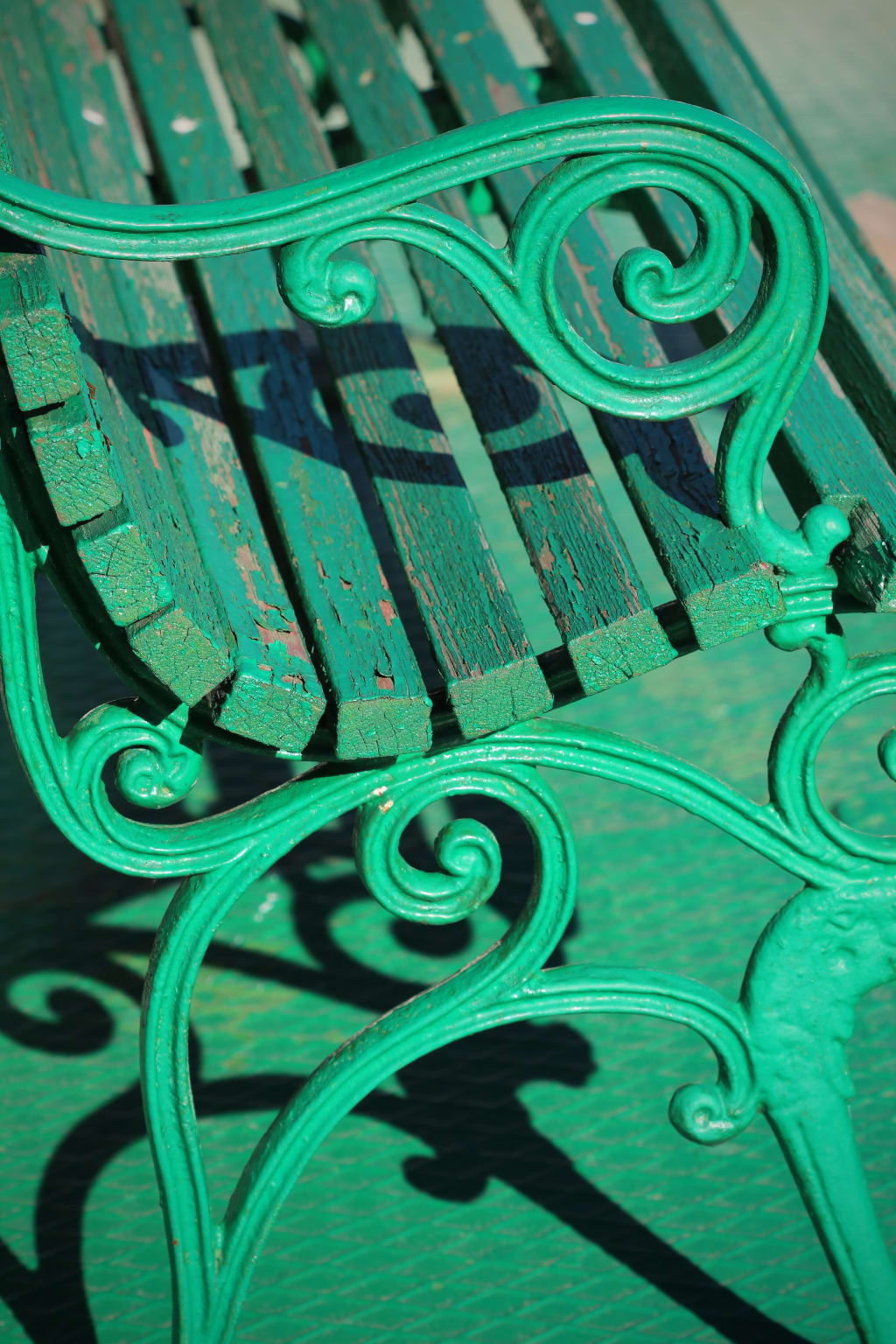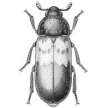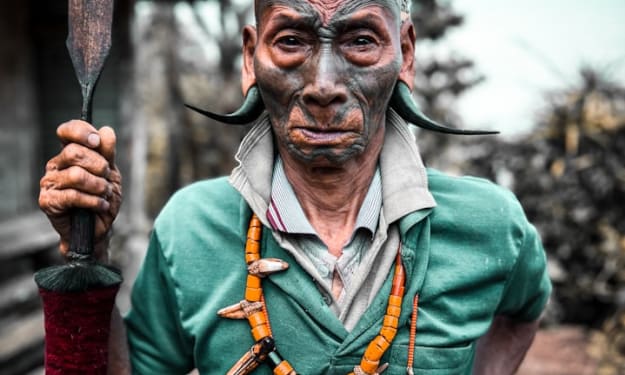
The bush was at least three feet tall, and just as broad, dotted with ruffled orange globes of silky petals. I had paused in my walk through the garden, and put down my tools. I needed both hands free when I crouched and cupped a section of the plant to my face, breathing in the fragrance of marigold leaves and flowers. This was the scent of summer fading away, fall fast approaching.
I sat for a while next to it, inhaling, exhaling, and looked around at its home. The pumpkins nearby were starting to turn orange, and slate blue, their beautiful pregnant bellies draped over straw. The sunflowers nodded and kissed each other as the warm breeze made its sinuous way through their bed. Vines of sweet potatoes made a soft blanket at their feet. On the edge of the bed next to me, a grasshopper cleaned its antennae fastidiously. Ants meandered after each other up and down the sprawling marigold, avoiding gobs of spittle bug foam at the junctions of leaf and stem. It was easy to lose myself in their activity, so I quickly became not-me, and temporarily ceased to exist. I was just eyes, watching them, and so was startled when someone entered the garden and spoke to me, making me human again.
“Beautiful flowers.”
I nodded. “Yep.”
They sat on a bench and dug into a backpack for a lunch bag. I tried not to watch, but they were so much more captivating than ants. Their hands were graceful, and strong, connected to long bare arms. The contents of the lunch bag gradually appeared, set out in a careful arrangement on the seat of the bench. The hands moved a sandwich to their mouth, and our eyes connected. The lovely mouth quirked in a small smile that I matched, and looked away from.
The ants were still wandering from tip to tail on the marigold, on some mission I could not discern. I wondered, briefly, if there would be pandemonium in ant-world if I removed a branch, disconnected an entire arm of their transportation system. I decided to risk it, and severed a stem with a small cluster of flowers. On my way to the shed, I set the stem on the bench, next to the luncher. We smiled at each other again, and I walked away to deposit my tools.
I’m not sure why, but I’ve never been good at organization. The shed was a mess, and I couldn’t bring myself to fix it. Everything in there was necessary, I mean, I knew we would use it at some point. I couldn’t throw anything away, but there wasn’t enough room to really have a place for all of it. So, everything it contained, barely, sort of slumped against itself, the mass having accumulated organically over time, growing like the marigold. I had a brief fractal vision- the small stems of the bush echoing the shape of larger stems, becoming the shape of the whole plant. The shed had not such a poetic form. The smaller piles of things did resemble the larger whole, but none of it was pleasing to the eye, or my spirit. I sighed and put the small hand tools in a bucket near the doors, where I had placed it so I would not need to step inside. Next time. I would clean it up next time.
“Thank you for the marigolds. I had my mouth full earlier, that’s why I didn’t say anything.”
“You’re welcome. I probably should have shaken the ants off.”
“Would you like some apple slices?”
I hesitated, fear clutching at my throat. “Maybe next time, thank you. Enjoy your lunch.”
They nodded and flashed another small smile before turning back to their meal.
On my walk home, I watched the breeze move the branches of the trees. I tried to pay attention to the sidewalk under my feet, the solidity of it. The breath in my lungs. I replayed the garden scene in my head, a little differently. The visitor’s smile, the offer of food. I would have sat down, we would have talked. Maybe they would come to enjoy my company, maybe I would like their stories. We would have had some things in common. I thought about the way they held their sandwich, the confident lines of their elegant fingers. The way their mouth tilted when our eyes met. I was home before I knew it.
My cat greeted me with head-butts and vocal remonstrations. I had been derelict in my duty. The food bowl was empty. After I filled it, and stroked my tiny tiger, I washed up in the kitchen sink. My hands relinquished their coating of soil to the drain. It was a relief to splash cool water on my face after the heat of the day had coated me in sweat. I would shower later. I sank into my chair at the kitchen table which, though not as hopelessly cluttered as the shed, was piled with papers and projects. I drank a full glass of water sitting there, looking at the empty chair across from me, thinking of shapely lips and clever fingers.
Each workday was a next time. I told myself not to expect to see them again, but every day still held a small hidden disappointment nestled underneath the glow of green growing things. The garden grew more lush, and began to fade. We picked the ripe pumpkins, and I reveled in the feel of their smooth round bodies in my arms. We cut off the heads of the sunflowers, heavy with seed, and chopped down their tall, straight stems to stack against the shed. They would become trellises for peas next spring.
The fall crop of kale grew densely bushy, with slender leaves of onions jutting up between them. There was a frost the night before, and the kale leaves were turgid, crunchy, sweet. I snapped off a basket-full and placed it on the covered stand by the sidewalk where passersby could help themselves. The frost, first of the season, had wilted the sweet potato vines, so now I dug into that bed with a fork and loosened the soil around each plant. The day was gently warm, the breeze cool, the soil vaguely moist and crumbly. Each precious excavated sweet potato was a curvy orange joy, exposed for the first time to the light. This one could be a smooth creamy soup. This one baked whole in its skin, just starting to caramelize when I removed it from the oven. Soon, a crate was full, and it joined the kale on the stand.
The busy summer insects had disappeared. Only a few hardy souls remained, sunning themselves on withered leaves. They would need to hide themselves before night, find somewhere to protect themselves from the next frost. Some would seek shelter in the leaf litter. Some would huddle together under the loose bark of dead trees. I thought of my apartment. Like a curled brown leaf, it seemed meager protection from the coming cold. I’d have to put in my storm windows, seal them, if I was to keep the indoor temperature comfortable. Should have done it a week ago. That morning, sitting at my kitchen table across from the empty chair, the cold had seeped in through my thin socks, and something bittersweet had seeped in through the thin boundaries of my soul.
A little bit of dread washed over me as I approached the shed. I stood in the doorway and looked at the heaps for the thousandth time. Suddenly, I was overcome by a rush of sadness that became anger. I pulled everything out, sorted it into piles. Plastic sheeting that would become row covers in the winter. Rope and twine. Stakes. Tools. Small hardware. I discovered that there was a place for nearly everything. I made a place for the remainder. It all fit. I could step inside and walk around. I sat down for a minute, enjoying the order.
Finally, I closed the doors and locked them. When I turned around, they were there, sitting on the same bench, pulling out a lunch. Smiling at me. They held up a container.
“Apples?”
“Sure, thanks.”
They were sweet. And so were the apples. The marigolds had survived the first frost, the only flowers left in the garden. I cut another branch before we left, and remained enveloped in their scent as we walked together.
About the Creator
Enjoyed the story? Support the Creator.
Subscribe for free to receive all their stories in your feed. You could also pledge your support or give them a one-off tip, letting them know you appreciate their work.






Comments
There are no comments for this story
Be the first to respond and start the conversation.